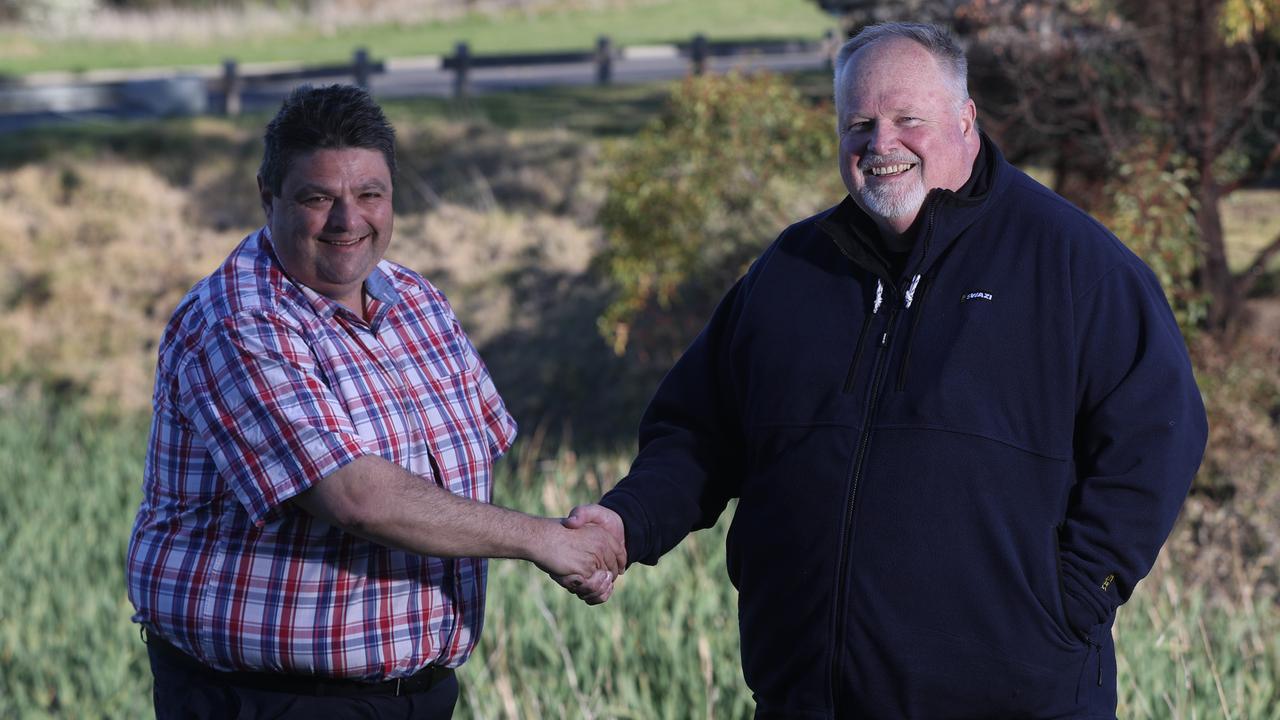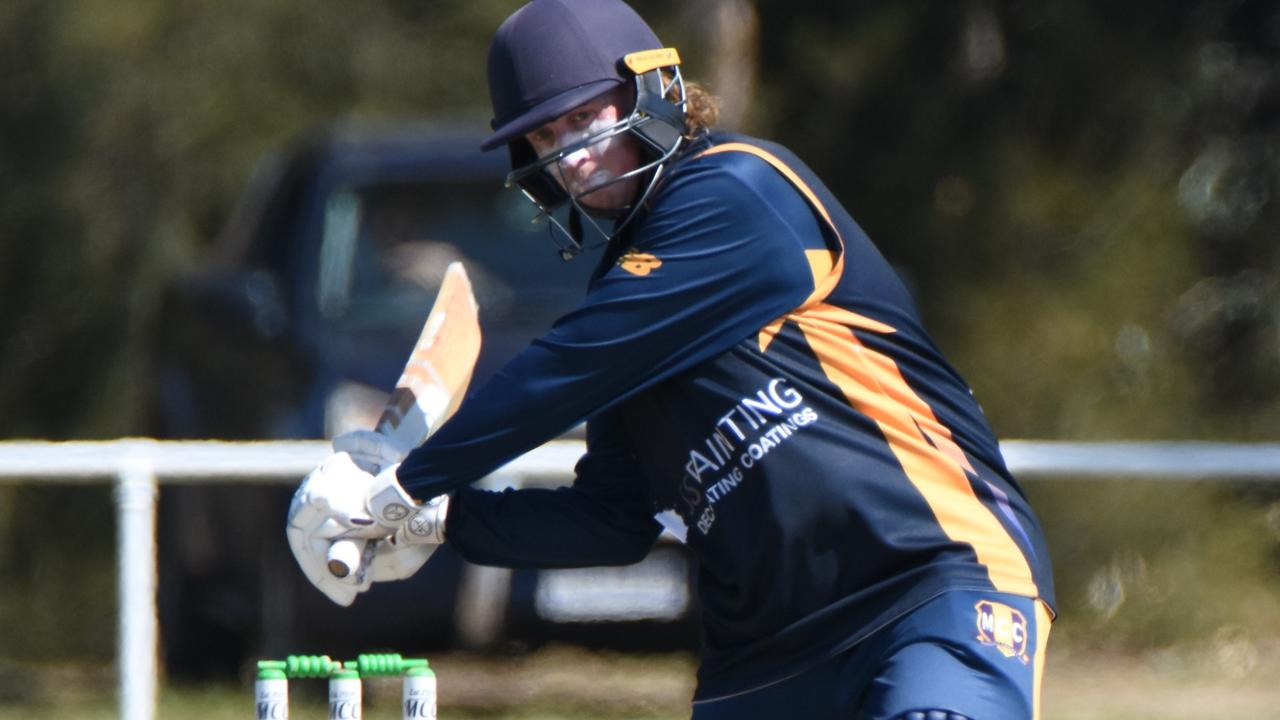Kent Morris carries The Torch for restoring cultural identity and breaking the prison cycle
For The Torch chief Kent Morris, the cultural, financial and artistic support his organisation provides for Victoria’s Aboriginal offenders has also restored his own sense of identity.

Geelong
Don't miss out on the headlines from Geelong. Followed categories will be added to My News.
Kent Morris says he was still finding his place in the world when he became involved with The Torch, a program offering cultural, financial and artistic support to Aboriginal offenders based in Victoria.
“My dad’s journey, as for many First Nations Australians, is one of separation,” he said.
“For my sister and I, we grew up inheriting that; some things weren’t as straightforward like who we are and where we are from.
“I learnt through the teachings of elders that once you know these things, your pathway will open up.”
In March, a state inquiry into Victoria’s criminal justice system revealed a shortfall when it came to minimising rates of reoffending.
As well, the Sentencing Council Victoria reported that of those released from Victorian prisons in 2018-19, more than 50 per cent of offenders returned to corrective services in the two years to 2020-21.
In the inquiry, the committee acknowledged the link between the communities’ most disadvantaged members and those who committed offences, as well as the need to increase prerelease planning before reintegration.
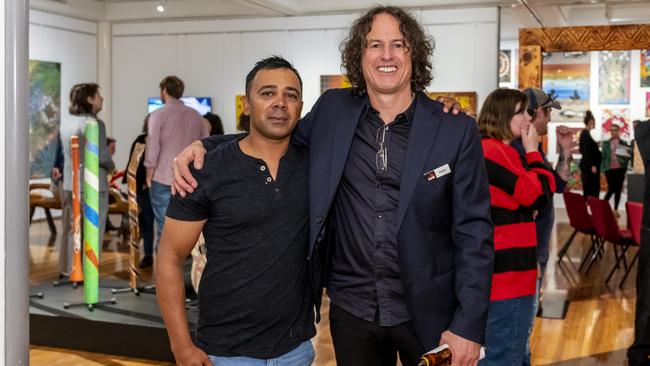
Through focusing on establishing a sense of place, Mr Morris took over what was then a tiny community arts organisation tasked with finding a way to help Indigenous offenders engage with their culture while working towards financial freedom.
While Indigenous Australians make up less than 3 per cent of the Australian population, they represent more than 30 per cent of the national adult prison population.
On top of this, Indigenous men are 15 times more likely to go to prison than non-Indigenous men, and Indigenous woman are 21 times more likely than non-Indigenous women.
“The program supports not only First Nations people on the inside but on the outside as well,” Mr Morris said.
“It is critical to maintain connection to cultural practices with all the challenges men and women face upon release.
“No man or woman has ever said to me, ‘I want to be in prison’. They tell me ‘I want to have a normal life, I want to be able to have a positive, productive life with my family and community’.
“The Torch is providing an opportunity for them to build resilience against the reoffending cycle.”
Mr Morris said the program uses Indigenous art to fill a cultural gap for many offenders as well as helping them share stories and educate one another.
But what can become a lifeline for many offenders is the program’s ability to connect them with the economy.
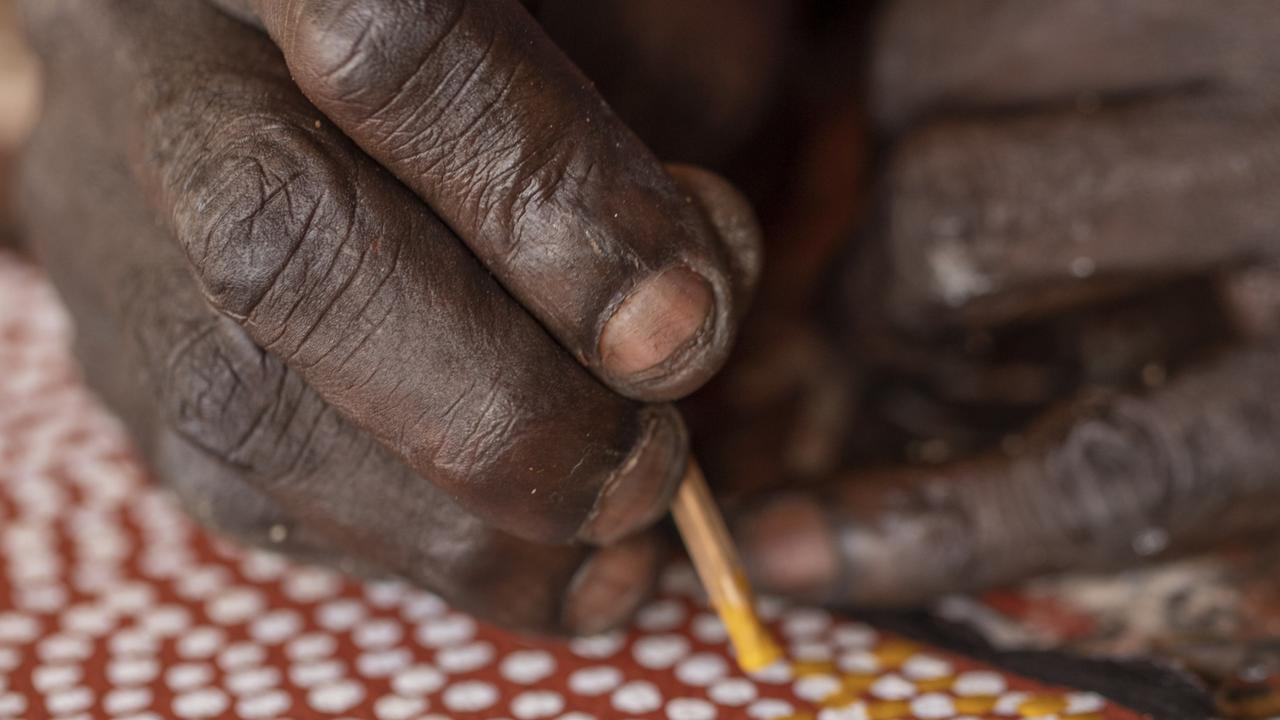
“Men and women connected to The Torch can sell their artwork with 100 per cent of the money held in a trust upon their release,” he said.
“The money can be accessed through an application process to support their family on the outside by paying for education, sporting costs and significant bills.
“It alleviates some of that stress at home and shows men and women that they can be responsible for their families.
“First Nations Australians are also the most disadvantaged in the prison system as well as over represented. Often there is limited economical support coming in from the outside, so The Torch helps their ability to earn an income to buy the basics like shoes and jocks, that are beyond reach, or a dollar-a-minute phone call.”
He said The Torch now supports close to 400 people both in and out of Victorian prisons, and has provided employment too many First Nations people who were previously engaged in the program.
“The journey from being in the criminal justice system to successfully reconnecting to community can be long, especially for those who have been institutionalised from a young age,” he said.
“When we go back to my story, if each person understands who they are and where they are from, then they can begin to heal.”
Corrections Minister Natalie Hutchins agreed that a lack of financial freedom was a driving force behind reoffending.
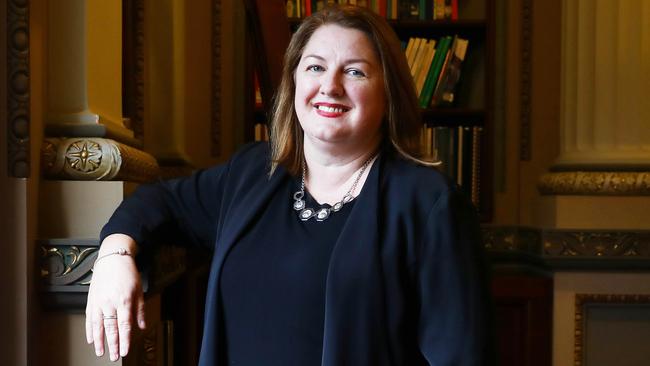
“A job provides income, independence and the opportunity to be a contributing member of the community — all of which are significant factors in reducing someone’s risk of reoffending and improving their life,” she said.
In recognising this, the state government has vowed to establish a Post-Release Employment Opportunities program at Lara’s Marngoneet Correctional Centre, where several employment specialists will be based for the next four years.
Former prisoner and founder of Fair Threads, Luke Anderson, said like many offenders he faced a rough start in life, which included periods of homelessness prior to his near three-year prison term.
Once in prison, Mr Anderson was determined to turn his life around, despite doubts he would be able to obtain work outside of prison.
Mr Anderson, who defied the odds, said post-release employment can change prisoners’ prospects by improving self-esteem, mental health and the ability to live a life free of crime.
“Post-prison employment allows inmates to continue counselling and other self-improvement practices they have begun in prison and gives them the resources to pay for essentials such as food, petrol and housing,” he said.
The program, which will be ran from Marngoneet and Loddon Prison, will help up to 225 people over the next two years to obtain jobs in textile and food wholesaling businesses upon their release.
The employment opportunities are supported by vocational training and education undertaken inside Victorian prisons, including warehousing, food processing, general maintenance and textile work like making prison tracksuits and mattresses.
“By working in partnership with private businesses we’ve created opportunities to improve community safety by supporting prisoners to get employment and get their lives back on track once they are released,” Ms Hutchins said.
REECE BOYD’S TALE OF REDEMPTION FROM JAILBIRD TO LOVE AND EMPLOYMENT
A convicted drug dealer who has been in and out of jail for the past decadehas revealed his secret to staying clean and getting a job.
Reece Boyd grappled with drug addiction during his 20s and spent many years in jail for serious crimes, including firearms offences.
He first went to jail at the age of 18.
The now 32-year-old, who is out of jail and working full time, said his family was a “key factor” motivating him to turn his life around.
But one of his biggest challenges after leaving jail was finding a job.
“It’s a very high-anxiety environment,” Mr Boyd said of his stint in jail.
“There’s a lot of paranoia.
“(But) definitely you can use it to your advantage (with several courses offered).
“I suppose it helped me in the sense of getting my life together, and getting back on the straight and narrow.”
Mr Boyd has four children aged 11, seven, five and 13 months old – and a partner.
He said the desire to be around to support his family had forced him to make positive changes in his life.
“Her and the kids are the key factor as to why I’ve just got no interest in any of the old stuff,” he said.
“I’ve missed enough time.
“(A criminal lifestyle) is just not safe, it’s not healthy.
“It hasn’t done me any favours.”
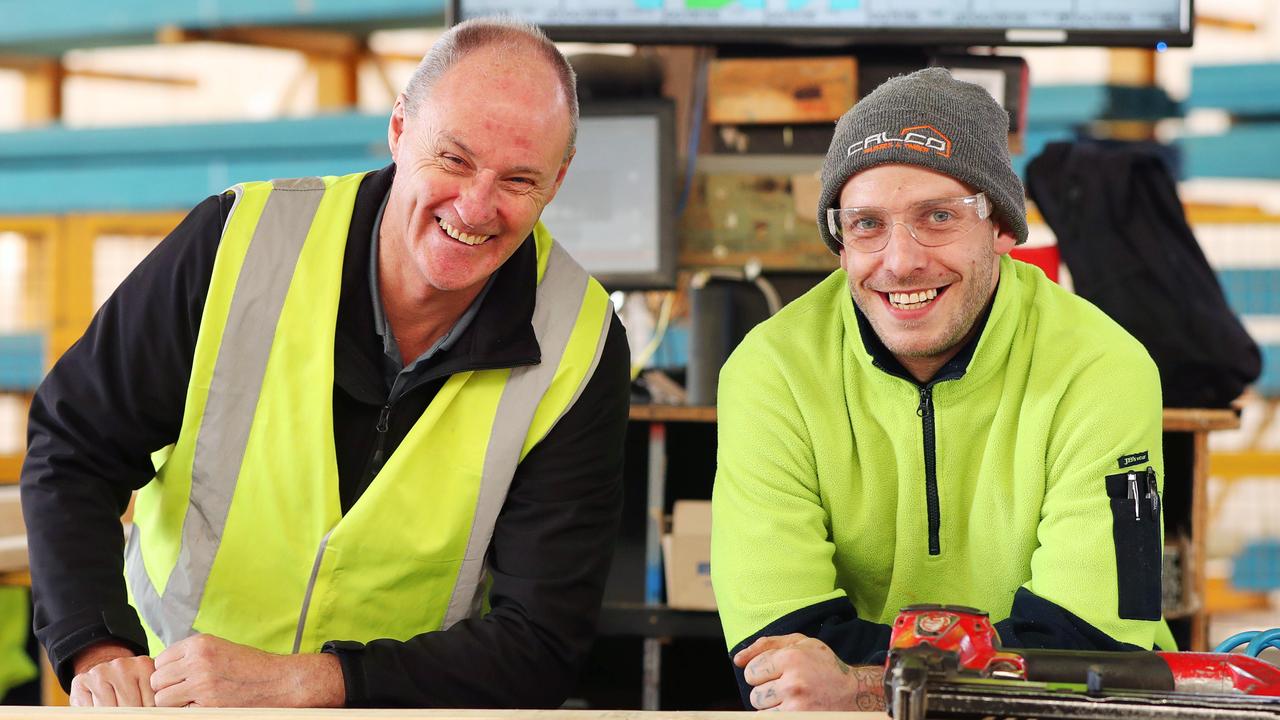
Mr Boyd said he was nervous about his job prospects once released and got turned down by prospective employers “quite a lot”.
He was eventually referred to Advanced Personnel Management (APM), a human services provider which connected him with Calco Trusses and Timber in South Geelong.
General manager Greg Taylor was willing to give Mr Boyd a chance.
Mr Boyd started on the production line and worked his way up to a rectification role where he now attends sites alone to fix errors.
According to APM, 17 per cent of its active caseload is ex-offenders and 56 per cent of those have found jobs this financial year.
“We’ve been very happy with how he’s come along,” Mr Taylor said.
“It’s a really mixed bag (with ex-offender employees) … some people just go through the motions.
“It really comes down to, I believe, how people wish to change their lives.”
Mr Boyd said he was “very appreciative” for the life-changing opportunity.
“Obviously with my history, it’s placing a bit of trust in me.
“It’s scary … (but) I’m excited and very happy to do it.
“As they say, change is as good as a holiday.”
Mr Boyd urged other employers to give former prisoners the chance he has had.
“You’re never going to know how good people are until you give them a chance,” he said.
“People deserve a second chance.”
More Coverage
Originally published as Kent Morris carries The Torch for restoring cultural identity and breaking the prison cycle




